Women in Economics
A career in economics can take you in many different directions. Meet some of Australia's leading women in economics.
Download the complete Poster 830KB
Public Sector Economist
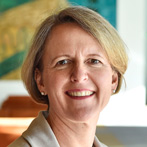
Jenny Wilkinson
Public sector economists advise Governments and Parliaments on the economic and financial implications of alternative public policies for the Australian people.
Meet Jenny Wilkinson
What does Jenny do?
Jenny is the Secretary of the Department of Finance. Jenny assists the Australian Government across a wide range of policy areas to ensure its outcomes are met, particularly with regard to expenditure, financial management, and the operations of government. Jenny was the first female head of an economic agency, the Parliamentary Budget Office, and has worked as an economist across a wide range of public policy areas in the Commonwealth Treasury, the Department of Climate Change, and the Department of Prime Minister and Cabinet, advising on a range of policies, including macroeconomic developments and forecasts, retirement income and superannuation policy, small business policy, competition policy and climate change policy. Jenny began her career at the Reserve Bank of Australia.
What did Jenny study?
Jenny holds a Masters in Public Affairs degree from Princeton University and a Bachelor in Economics (Honours) degree from the Australian National University.
Labour Economist
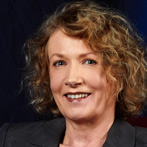
Alison Booth
Labour economists study the dynamics of the workforce and decisions made by employees and employers that influence these dynamics, like education and family choices through to discrimination in the labour market.
Meet Alison Booth
What does Alison do?
Alison is a Professor of Economics at the Australian National University. She researches a range of issues in labour economics, including gender differences in risk behaviour, how romance affects education decisions, and inequality in living standards in developing countries.
What did Alison study?
Alison holds a Masters degree and a PhD in Economics from the London School of Economics.
Central Banking Economist

Michele Bullock
Central banking economists engage in research and analysis of the economy and its outlook so that policy decisions can be made that best support the welfare and prosperity of the Australian people.
Meet Michele Bullock
What does Michele do?
Michele is the Governor of the Reserve Bank of Australia, the nation's central bank. She oversees the RBA's entire operations, including the use of monetary policy to achieve economic objectives; maintaining a strong financial system and issuing the nation's currency; and chairing the RBA Board, the Payment Systems Board and the Council of Financial Regulators.
At the RBA, Michele has also served as the Deputy Governor, Assistant Governor for various groups and Head of Payments Policy Department.
What did Michele study?
Michele holds a Masters degree from the London School of Economics and a Bachelor of Economics (Honours) degree from the University of New England.
Finance and Economics Commentator

Jessica Irvine
Finance and economics commentators provide analysis and commentary on topical finance and economics issues to inform and engage wider audiences.
Meet Jessica Irvine
What does Jessica do?
Jessica Irvine is Commonwealth Bank’s Personal Finance Expert, as well as an award-winning author. She specialises in helping people with their money and has a personal mission to raise the financial wellbeing and capability of all Australians. Prior to her current role, Jessica held multiple roles in journalism with leading Australian newspapers including senior economics writer, national economics editor, host of a money podcast and wrote a weekly money column and newsletter. Jessica's first role as a graduate was at the Australian Competition and Consumer Commission.
What did Jessica study?
Jessica studied Economics (Social Sciences) at the University of Sydney, with majors in Political Economy and Philosophy and completed an honours year in Political Economy.
Environmental Economist
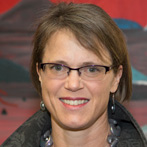
Jo Evans
Environmental economists examine the relationship between the economy and the environment. They look at ways to achieve a healthy environment, a strong economy and thriving communities.
Meet Jo Evans
What does Jo do?
Jo is the Deputy Secretary of the Department of Climate Change, Energy, the Environment and Water. She is responsible for providing advice and then implementing the Government's policies on climate change. Jo's responsibilities include supporting the Australian Government in its global negotiations on climate change policy and its participation in global efforts to accelerate the transition to clean energy. Jo's first role as an economics graduate was with management consultants McKinsey & Company. Her experience also includes working in technology commercialisation and with an internet start-up company.
What did Jo study?
Jo holds a Masters of Public Policy degree from Princeton University and a combined Bachelor of Economics/Bachelor of Asian Studies degree from the Australian National University. She holds a Masters of Environmental Science from the University of Melbourne.
Market Economist
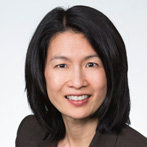
Su-Lin Ong
Market economists in global financial institutions highlight trends influencing financial markets by providing detailed economic analysis and forecasts for regions around the world.
Meet Su-Lin Ong
What does Su-Lin do?
Su-Lin is the Chief Economist and Head of Australian Research for RBC Capital Markets. She is part of the global strategy team with primary responsibility for formulating and presenting RBC's Australian and New Zealand macroeconomic outlook along with forecasts for the cash rate and bond yields. Based in RBC's Sydney office, she works closely with colleagues trading in financial markets in Australia as well as in key international hubs, including New York and London. Prior to joining RBC in 1998, Su-Lin was a fixed income economist for Hambros Bank and was an economic advisor at the Department of Prime Minister and Cabinet.
What did Su-Lin study?
Su-Lin holds a Bachelor of Economics from the University of Sydney, a Post Graduate Diploma in Applied Finance and Investment from the Securities Institute of Australia, and is a graduate of the Australian Institute of Company Directors.
Public Sector Economist
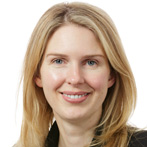
Danielle Wood
Public sector economists advise Governments and Parliaments on a range of economic, social and environmental issues affecting the welfare of the Australian people.
Meet Danielle Wood
What does Danielle do?
Danielle is the Chair of the Productivity Commission. Danielle conducts independent research and provides advice to the Australian Government on key policy and regulatory issues that affect Australia's economic performance and community wellbeing. She is the first woman to lead the Productivity Commission or any of its predecessor agencies. Prior to this role, Danielle was the CEO of the Grattan Institute and Head of its Budgets and Government Program. Danielle has also worked in senior roles at the Australian Competition and Consumer Commission and NERA Economic Consulting. She began her career as a graduate at the Productivity Commission.
What did Danielle study?
Danielle studied economics in high school before going on to complete a Bachelor of Economics (Honours) from the University of Adelaide. She later completed a Masters of Commerce and a Masters in Competition Law from the University of Melbourne.
Market Economist
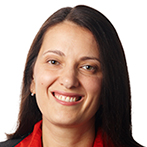
Besa Deda
Market economists in Australian financial institutions formulate views and forecasts of economic conditions to guide the investment decisions for their institution's clients.
Meet Besa Deda
What does Besa do?
Besa is the Chief Economist of a group of businesses within the Westpac Group, including Westpac Business Bank and St.George Bank. She formulates views and forecasts of the economic outlook, conveys these views and forecasts to staff and clients, and manages a team of economists. She also gives regular presentations and often appears in the media reporting on economic conditions. Prior to this role, Besa held Senior Strategist and Economist roles with the Commonwealth Bank and Colonial Group. Besa is the Chair of the Australian Business Economists' Association, and has previously written a regular property column for the The Australian newspaper and lectured for FINSIA (now known as Kaplan).
What did Besa study?
Besa holds a Masters in Applied Finance degree from Macquarie University and a Bachelor in Economics (Honours) degree from the University of Sydney.
Behavioural Economist
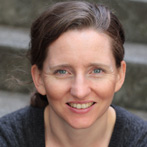
Gigi Foster
Behavioural economists apply psychological insights to explain economic decision making.
Meet Gigi Foster
What does Gigi do?
Gigi is a Professor at University of New South Wales and was named Young Economist of the Year in 2019 by the Economic Society of Australia. She teaches and researches questions in many areas, including education, love, time use, corruption and social norms. She also provides regular commentary in the Australian media, including via her co-hosted radio show ‘The Economists,' on ABC RN. Gigi worked as an economic consultant prior to entering graduate school.
What did Gigi study?
Gigi holds a Bachelor of Arts from Yale University. Her undergraduate major was Ethics, Politics and Economics. She has a PhD in Economics from the University of Maryland.